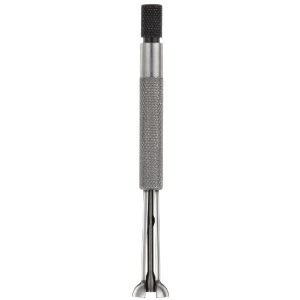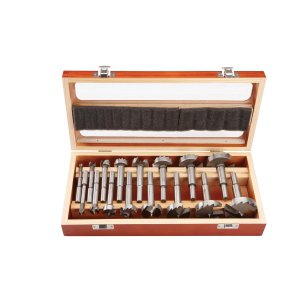- Joined
- Feb 8, 2014
- Messages
- 494
I am making some parts in delrin that involve a shallow hole 0.118" deep (3mm). The diameter is 0.866" (22mm). It's also a bearing fit (a pair of these parts fit over a 608 bearing), so I need to be pretty consistent. I am going for a fairly heavy press, as friction is all that will be holding these in place. My problem right now is measurement. I have been using telescoping guages, but the hole is so shallow, and the plastic is so forgiving, it is hard to get a consistent measurement. I'm thinking somebody out there has to have a better way.
One other thing; this is a test batch (6 pieces). If it works out, I need to make another 12. It took me about 2 hours to make 3, mainly because I was measuring 3 times after every pass before I was sure I was really "there".
Make up a SPADE DRILL BIT of the correct diameter, or modify a store bought one. Your only cutting plastic.
fixit



